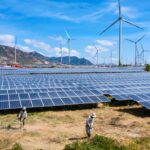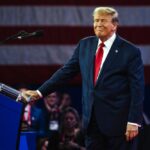A regulatory audit found that two of China’s top electric car manufacturers, Byd and Chery, allegedly claimed that the combined value of their eco-friendly vehicles was incorrect in the five years to 2020.
The audit was launched earlier this year to verify subsidy applications over five years and found that 21,725 vehicles should not receive a total of RMB 864.9 million ($121 million) in subsidies.
China has provided generous subsidies for new energy vehicles between 2009 and 2022 to promote the adoption of electric, plug-in hybrid and fuel cell vehicles. This worked and led to exponential growth in new energy vehicles (NEVs), so that sales of such vehicles began to outpace gasoline-powered car sales every month since March.
Also on AF: The boom in electric truck sales will also reduce China’s demand for diesel
To date, regulators have not been suspected of fraud, but have found differences such as failure to submit required support documents or meeting mandatory mileage thresholds.
Byd and Chery together account for 60% of the total claims. Chery has 7,663 cars disqualified, while Byd has 4,973.
The audit documents do not provide for any fines or mention reimbursement, but the government has previously said automakers will have to repay subsidies for vehicles found not to meet mileage requirements.
Meanwhile, Qiri denied the regulator’s claims. It said in a statement that it had previously associated with authorities with challenges of losing revenue as the cars were sold five years ago and the government has advised the company to announce the ministry’s cars to determine whether they should be eligible.
“Our company has reported to the authorities truthfully [that] We did not receive a final sales certificate; there was no fraud. ” Qiri said in a statement.
It also said that the audit covers statements of unpaid subsidies, so automakers do not need to repay.
Electric car maker Byd did not respond to Reuters’ request for comment.
Added review
This month, China’s top leaders pledged to raise pricing regulations and support orderly phase-outs divided from outdated production capacity. Now, local governments are also conducting more reviews of subsidies issued in 2021 and 2022.
If Chinese automakers may face potential subsidy repayments, it may exacerbate the pain of industry and overcapacity.
Regulators and officials have scrutinized an industry that has been damaged by years of price wars that have conflicted dealers and suppliers with manufacturers.
The huge discount announced by Byd in late May inspired increased scrutiny. Discounts lead to Rare public infighting Within Chinese electric vehicle companies, the impact on price wars has caused many surprises on vehicle quality and the future of the industry and its suppliers.
At that time, the person in charge of the EV-Maker large car also proposed again The 2023 allegations At the time, Byd’s two best-selling models did not meet Chinese emission standards.
In the weeks that followed, Chinese officials called on automakers to stop the brutal price war and announced new regulations End the practice This provides automakers with greater profits while hurting supplier liquidity.
Regulators also meet with automakers including Byd and Dongfeng Motor to cut sales of “used cars” Never driven.
- Reuters, other editors and inputs with Vishakha Saxena








